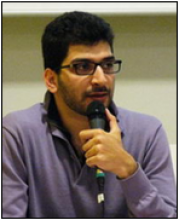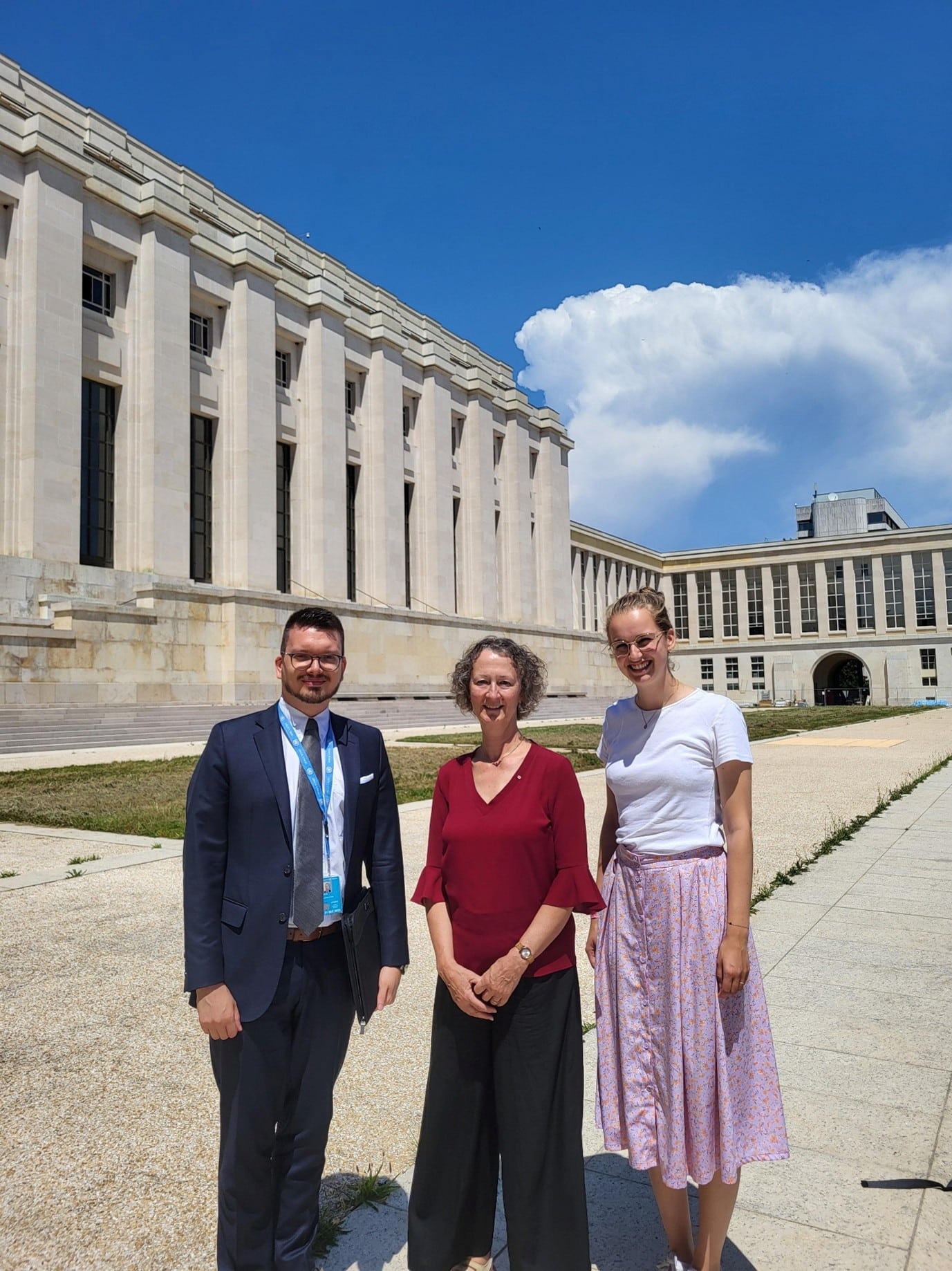Since 2012, the World Evangelical Alliance (WEA) has a permanent presence at the UN Human Rights institutions in Geneva, Switzerland. Its main focus is to work with National Evangelical Alliances to ensure their voice is heard by their governments when social policies and human rights are reviewed. At the beginning of this month, WEA’s Geneva team has welcomed Wissam al-Saliby, a Lebanese human rights expert, as its new full-time Advocacy Officer.
The following is a brief interview:
Cou ld you tell us your life story in a nutshell?
ld you tell us your life story in a nutshell?
I’m Lebanese. I have lived all my life in Lebanon, including during the civil war as a child. At the age of 18, I enrolled in the law program at the Lebanese University. I later received a scholarship and pursued my master’s degree in international law in Aix-en-Provence, France, with an emphasis on protection and human security. Parallel to my university studies, my engagement with Lebanese NGOs was incredibly formative. Civic engagement in a post-civil-war country and a multi-confessional and multi-cultural society proved to be an enriching and life shaping experience.
In 2013, after working in Lebanon and the region on human rights advocacy and education and after more than 15 years of faith in Jesus Christ, I started to work with the Arab Baptist Theological Seminary (ABTS) as their Development and Partner Relations Manager. I felt drawn to using God’s gifts and the experience given to me in such a strategic ministry.
At ABTS, I met my wife. She came from Texas to Lebanon through her church to serve women and girls. We got married in 2015 and today I have a precious blond and blue-eyed baby girl.
How is it to be an international, intercultural family?
I admire the family values of my wife and her family and the considered way they deal with children. Those were really different from what I grew up with and saw in Lebanon. But what was actually surprising in our marriage life is how similar we are, how similar our values and personalities are even though we come from two completely different worlds.
What brought you to human rights?
When I was in high school, I used to buy the national newspaper once a week and Le Monde Diplomatique monthly. I felt drawn from a young age to address issues of injustice and this naturally led to studying law. Reading and learning about the world was the first step. It wasn’t a normal thing for my age, back then. Also civic engagement with NGOs in Lebanon, especially those who were trying to deal with the unhealed scars of the civil war, shaped my choice for university studies and for my career.
What do you think of the evangelical family in future?
The evangelical church is growing, especially in developing nations where the Church and evangelicals are a minority. And as these emerging churches spread, denominational differences will become less pronounced. However, from my experience at ABTS, this growth does not translate necessarily into solid theological foundations. I also learned at ABTS that partnership, bridges, and relations among the various members of the Body of Christ are essential for healthy church growth and for healthy theological foundations.
What is your perspective on public theology, i.e. theology that deals with the political aspects of public life?
The Sermon on the Mount, Jesus’ parables and hundreds of Old-Testament passages guide us in how we should speak up for what is right and defend the rights of the poor and needy (Proverbs 32). The Bible teaches us to care for the poor and never holds them responsible for their own poverty. One of the surprise passages that I recently discovered is Ezekiel 16:49, which says “Behold, this was the guilt of your sister Sodom: she and her daughters had pride, excess of food, and prosperous ease, but did not aid the poor and the needy.” What a condemnation of our lifestyle today!
Therefore, public theology is a theology of engagement on behalf of the poor and needy, of the oppressed and suffering.
WEA Geneva emphasizes work in the UPR process as it targets the comprehensive structure of human rights and the peer character of states. Where are the opportunities in the present global political context?
The present global political context is gloomy, and that’s not news to anyone. The UN High Commissioner for Human Rights, Zeid Ra’ad, recently said that he would not run for the position for another term as he has encountered an appalling climate for advocacy. Rising nationalism in many countries across the globe is threatening minority rights and religious minorities.
In such times, we cannot but speak out. And the UPR has become a well-established and well-oiled mechanism, continuously maturing, which offers civil society the opportunity to be vocal on various human rights challenges.
What is your advice to national evangelical alliances when it comes to human rights and legal development?
In our inter-connected world, speaking out fairly, factually and accurately in international fora against injustice can yield a positive impact locally. I don’t know as much about national Evangelical Alliances yet, but I have seen many human rights initiatives across the Arab world which struggle to get the methodology right, or on the other hand initiatives which succeed because they employ the correct methodology.
In addition to the correct methodology, my advice is to defend the rights of all, for there is no such thing as religious freedom for one group, or freedom of expression for one group. Freedom and human rights are for all and advocacy should be on behalf of everyone.
You have yourself lived through war and civil strife. What is your take-away advice to fellow humans who may have little understanding of such situations?
I was just 4 years old when one of the armed groups shelled my school. At the time we were playing in the playground and the explosion threw out shrapnel, which killed one girl and wounded my neck. I still have a scar on my neck from that injury. The Lebanese civil war was gruesome just like all wars. Men’s sinfulness reaches new levels when all things break down. And yet, as soon as the war was over, I was back in a classroom where children from many religious communities were together, building friendship. So my take-away advice to fellow humans is the need to have classrooms where children from all strata of society, whether religious or ethnic, are together. So that the friendships built at a young age prevent these people from carrying arms against one another in the future.
And what do you advise those who are presently suffering under such a burden?
In June 2017, at ABTS, our annual conference was titled “The Church in Disorienting Times: Leading Prophetically through Adversity.” One of the conference themes was responding to suffering and persecution. A take-away from this conference is that we as Christ followers need to help correct injustice and bring healing, while being aware that economic and social ‘freedoms’ do not in themselves fulfill man’s deep yearning for real peace. Only the Gospel of Peace brings real peace, healing and hope.
I also learned from the conference that the Church needs to have a prophetic voice – to prophetically envision an alternative reality to the current one, where suffering is halted and healing and reconciliation can take place.
Follow WEA's UN Team on Twitter: @WEA_UN
Follow Wissam on Twitter: @walsaliby





Stay Connected